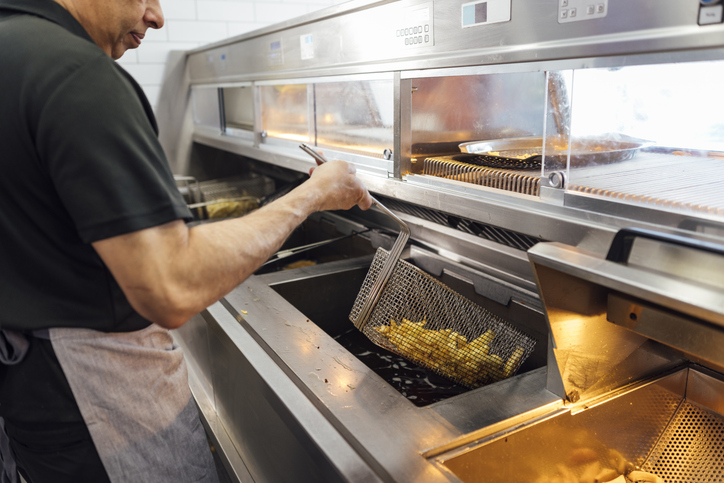Why do you need food stall insurance?
Whether you’re showcasing your creations at a food festival, crafting Instagram-able cupcakes or cooking up street food that’s making waves, it’s important to be covered.
As a food stall business, there’s always a risk of accidents and damage when cooking. But as a customer-facing business that serves food and drink to the public, you’ll also need to be covered for public and product liability should your products or services cause an injury or damage someone’s property.
Food stall insurance coverage
Food stall businesses usually take out one or all of these types of cover:
- Employers’ liability insurance – Covers you if an employee becomes ill or injured while working. This is a legal requirement if you employ one or more people.
- Product liability insurance – Covers you if someone becomes ill or injured by a product you have supplied e.g. food and drink.
- Public liability insurance – This covers you in case your product or service causes injury or damage to a customer or someone who isn’t an employee.
- Business contents insurance – Covers any business equipment and tools you have against theft, fire or damage. Check your provider to see if this covers perishable stock such as food and ingredients.
- Legal expenses insurance – In case you need to pay legal costs associated with your business.
- Personal accident insurance – This protects you (or anyone you name in the policy) in the case of an accident, and covers you both in and out of working hours.
How could food stall insurance protect your business?
Here are a few scenarios where having food delivery insurance coverage could come in handy:
- A customer getting an allergic reaction to food you’ve served
- Your equipment or stock getting stolen at a food festival
- A chef getting burnt while cooking
Choosing a food stall insurance policy
When choosing food stall insurance policies, it’s good to ask yourself:
- What types of workers do I employ?
–You’ll need to have employers’ liability insurance no matter the type of employees you have, including full/part time, contractors or permanent staff. - Will my business grow in the future?
–It’s good to plan for your business growing by getting flexible cover that can grow with you. - Which liability cover limit should I choose?
–Make sure you take into consideration the maximum amount your business could lose in terms of public liability and choose a policy that reflects it.
FAQs
- What types of business insurance are mandatory? Employers’ liability insurance is the only type of business insurance you’re legally mandated to have, which is applicable no matter how many employees you have. However, as a public-facing business, it’s strongly recommended to have public liability insurance to go alongside this.
- Should I get standalone policies or a bundled insurance package? This will depend on the types of insurance you need for your business. Insurance bundles can be helpful in getting the full coverage
,and can often be tailored to your needs. However, if you’re already covered for one aspect of your business, you might only need a standalone policy. Always compare policies to make sure you’re getting the best value. - What insurance do I need to run my business from home? – If you’re running your business from home (e.g. food preparation), you’ll still need many of the same types of insurance. Business contents insurance, for example, guarantees your equipment, stock and tools are covered beyond your standard home insurance.
- Am I covered for alcohol? If you’re serving alcohol alongside food (rather than just serving alcohol), you’ll be covered by public and product liability insurance.
See also:
- What insurance do I need for a café? – Whether you’re showing off your carefully crafted latte art, creating cupcakes or getting famous for your flat whites, it’s important to be covered by café insurance.
- Employers’ liability insurance – what is it and do you need it? – We look at everything you need to know about employers’ liability insurance.
- How to read a certificate of insurance – Here’s everything you need to know about a certificate of insurance, from the main features to why they’re crucial for your small business
Are you looking for insurance for your business? Try our free quote-finding form and answer a few questions (it takes less than a minute).




